The ringtone triggered by the app is alarmingly high-pitched: impossible to ignore. I check it for the 10th time that day - two white rockets about to hit a red skyscraper city.
Being alarming is the apps' 'mo': it’s forewarning you that rockets, in this case fired by Hamas in Gaza, are about to land within seconds in whichever Israeli city, town or village you happen to be standing, sitting, sleeping.
There’s no such app for Gaza.
Even if there was, most Palestinians no longer possess a phone; can no longer charge one; or can no longer find a signal. There are no warnings here for the hundreds of bombs raining down on Gaza every day, 400 a day at the moment.
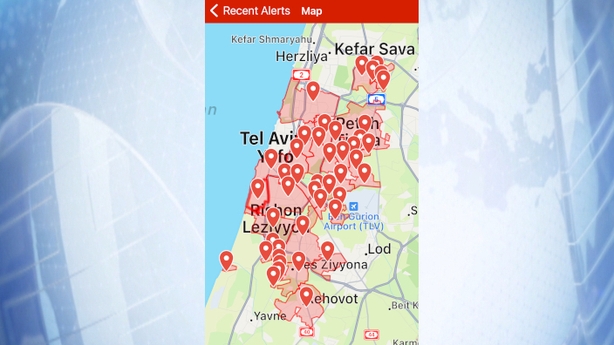
It is a nightmarish world where thousands have already been killed and where food is running out; where the taps have run dry; where electricity has disappeared; where hospitals are closing down; and things could get even worse with a land invasion pending.
On the other side of the perimeter fences, Israelis are protected by what’s called the "Iron Dome". It’s a US missile system which destroys most Hamas rockets before they land. While it’s effective, Israelis still move quickly to bomb shelters when the app alert trills and the air raid sirens sound. For the next two minutes the air will reverberate with loud sonic-like booms.
Because of the dome, the daily rocket attacks don’t cause panic here. It’s almost as if Israelis feel their skies are protected.
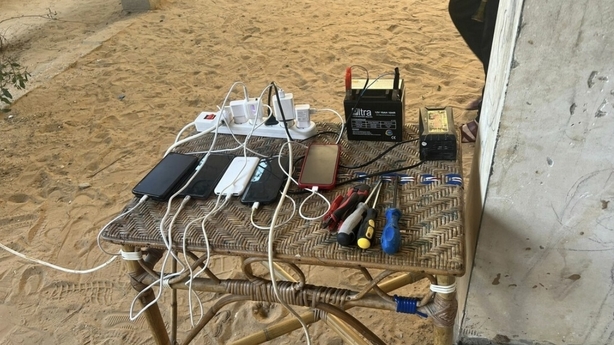
What is unnerving them is that Hamas still has the capacity to fire rockets every day, despite the heaviest bombardment ever undertaken by the Israeli air force.
It's estimated that Hamas has fired more than 8,000 rockets from Gaza into Israel over the past three weeks. It seems to be a way for Hamas to give its mortal enemy the two fingers.
The rockets aren’t the only thing unnerving the Israeli people I’ve met over the past few weeks.
The scale and brutality of the surprise attack by Hamas on 7 October came as a total shock. That’s matched by the complete disbelief at the abject failure of the Shin Bet intelligence service to anticipate it, or the Israeli Defence Forces to respond immediately once it started.
Israelis watched the horror unfold in real time. WhatsApp messages spread and were picked up by the media - terrified Israelis cowering in their safe rooms, pleading in desperation - where is the army? As Hamas militants rampaged through the Kibbutzim, the army was nowhere to be seen for hours.
It has shattered the illusion that the IDF are invincible and that the government’s promises of protection are real. Both the military and government contend that lessons will be learned, but right now their only priority, they say, is fighting Hamas. A political reckoning might have been delayed but it will come.
To understand the stated reasoning behind Israel’s relentless onslaught on Gaza, it’s necessary to realise how the Hamas attack on 7 October is viewed. I was told repeatedly: "This has changed everything." Prime Minister Netanyahu described it as the country's 9/11.
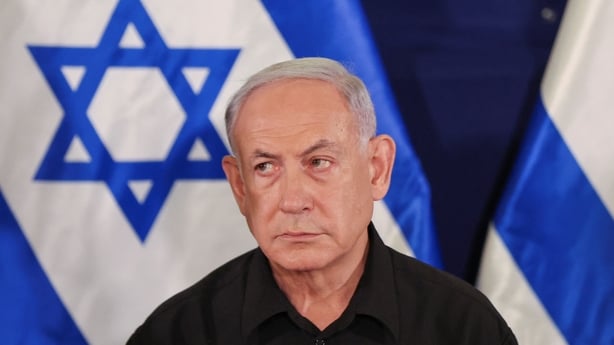
Israelis have never experienced anything like this before: 1,400 people massacred, some of them gruesomely; 4,000 injured; more than 200 held hostage. It’s off the scale.
What flows from the shock of the Hamas attack, is a burning resolve to never ever let it happen again. They equate Hamas as an existential threat and therefore, according to the hard-right government, it must be "annihilated".
When Irish politicians call on Israel to exercise proportionality in its military response, given the already massive civilian death toll in Gaza, it has been falling on deaf ears.
That’s because many Israelis believe there is an objective - the elimination of Hamas - and everything else is secondary. On the beach in Tel Aviv swimmers and strollers told me that they weren’t blind to the humanitarian catastrophe unfolding in Gaza, but…
There are peace campaigners in Israel, and civil society groups demanding that the rule of law is strictly applied, but their voices are drowned out.
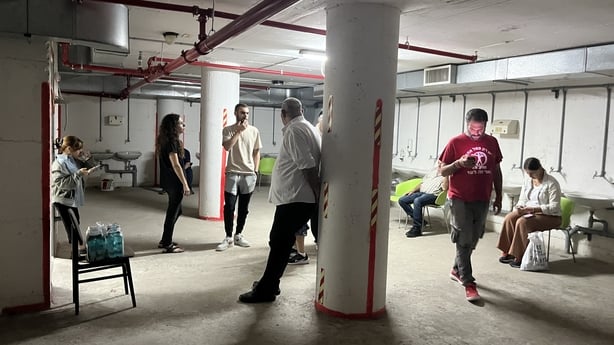
The IDF speaks of destroying Hamas’ command and control capacity; obliterating its extensive tunnel network; rooting out its Gaza leadership; and finishing off every single terrorist it can find. This begs a significant question: is it possible to destroy Hamas?
The entity, designated as a terrorist grouping by Ireland and the EU, isn’t limited to Gaza. It has leaders in Turkey and Qatar. It has members in the West Bank. Finishing it off inside Gaza also seems unlikely.
How could such a military target be achieved anyway? Is the IDF really going to go down every single tunnel under Gaza to hunt for every weapon and every insurgent?
There are constant references from the Israeli government to its reserve force of 360,000 personnel being mobilised. But these are civilians who have spent just two years doing their compulsory military service - sometimes many years ago. Is that force really going to smash Hamas in its own backyard of Gaza city?
It’s beyond conjecture that Hamas has been setting traps and making intensive preparations for an incursion. Even if the Israelis did take a key target like Gaza city - how long could they hold it for? The IDF says it has no intention to permanently occupy Gaza. So what would prevent Hamas, after any Israeli retreat, from reasserting its control?
There are no clear answers to these questions. Hamas may well become a significantly diminished force post invasion, but it would likely reconstitute itself quickly.
Politicians such as Israeli Defence Minister, Yoav Gallant, and former general turned war-cabinet member, Benny Gantz, have both talked tough about this war possibly running for more than a year. They don’t say what format such a war will take or Israel’s capability to wage it.
Some form of land invasion does seem inevitable though and IDF tanks have already made preparatory incursions into Gaza. The invasion may not begin for a few days yet as Israel’s key ally, the United States, consolidates its military position in the region. A second US aircraft carrier is en route to the Mediterranean. The US is also assembling another iron dome system.

But the facts scream that Israel will soon have boots on the Gaza ground. The air strikes have intensified and there have been increasingly large IDF incursions into the strip. Reports say commanders have already been flown over target sites in Gaza.
However, giving the green light to such an operation has gargantuan consequences. More than two million people live in Gaza and urban warfare has a ferociously high civilian death toll.
Should Israel order in its troops, it will be in the full knowledge that it will further lose international support as civilian casualties mount. This is a risk that Israel seems fully prepared to take.
I tried to engage Israelis on this issue of their responsibility for what is taking place today in Gaza. They return to their core point - what happened on 7 October must never happen again.
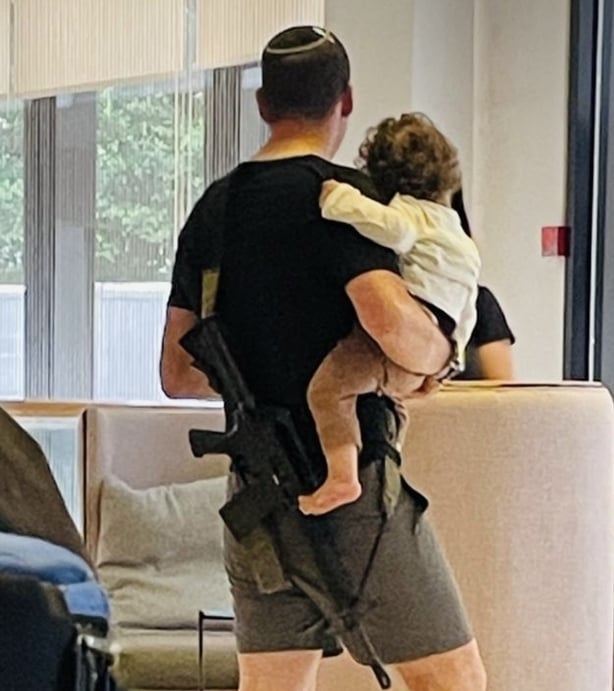
There are further risks. The West Bank, already at boiling point due to Palestinian outrage at never-ending Israeli settlement expansion, will undoubtedly explode in the event of an invasion of Gaza.
The President of the Palestinian Authority Mahmoud Abbas, who is based in Ramallah in the West Bank, has limited influence. He has called for an immediate ceasefire to allow in urgently needed humanitarian aid into the strip.
President Abbas has also met world leaders, like French President Emmanuel Macron, and spoke to others, like US President Joe Biden, about kick-starting Middle East peace talks. In truth, however, he holds little sway over Hamas-controlled Gaza.
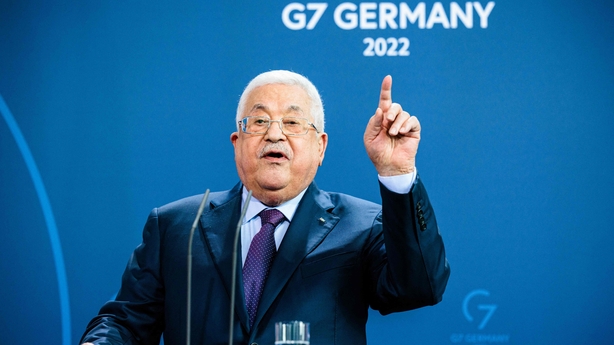
And then there’s the question everyone in the wider region is asking - what will the response be from the Iranian-backed militia, Hezbollah, in southern Lebanon?
This is important because Hezbollah is estimated to have a standing force of 20,000 fighters, with thousands more in reserve. Its militants are battle-hardened after years in Syria fighting on the side of President Bashar al-Assad.
Hezbollah also has a massive arsenal of rockets which are believed to have a longer range than those of Hamas and are more powerful and more accurate.
The general guess is that Hezbollah has 80,000 such rockets. But no-one knows for certain. Given that Hamas’ rocket arsenal has been so under-estimated in this current conflict, maybe the same could be true for Hezbollah. It raises the question: could a massive Hezbollah rocket barrage bring down the Iron Dome?
Iran, which backs Hezbollah with finance and training, claims it is up to the militia to take its own operational decisions. But it’s notable that the Iranian Foreign Minister, Hossein Amir-Abdollahian, was meeting the Hezbollah leader, Sayyed Hassan Nasrallah only a few days ago.
Low-scale hostilities have already kicked-off, with Hezbollah firing rockets at Israel in the past three weeks, and making border incursions. Retaliatory shelling and air strikes by the IDF have followed.
Irish peacekeepers in the 122nd Battalion, stationed in southern Lebanon, are now regularly hitting the bunkers when the violence erupts.
Yet while more than 40 Hezbollah members have been killed, the exchanges have been contained - until now at least.
Israeli Prime Minister Benjamin Netanyahu has repeatedly stated over the past three weeks that Hezbollah would be making the biggest mistake of its life to get involved. The huge US military build-up - including that second Iron Dome system - is mainly aimed at dissuading Hezbollah, and its backer Iran, from taking any action.
But Hezbollah could feel its hand is forced, should there be a military invasion by the Israelis into Gaza. Opening a second front would mean Israel would have to divert forces from the strip to its northern border - easing the pressure somewhat on Hamas.
However, Israel could yet decide to limit its assault in Gaza to specific targets rather than taking over everything north of the Gaza wadi which bisects the strip. That wouldn’t live up to the stated aim of annihilation though.
As the war games are mapped out, and argued over, a further complication is the plight of the 220+ hostages held by Hamas.
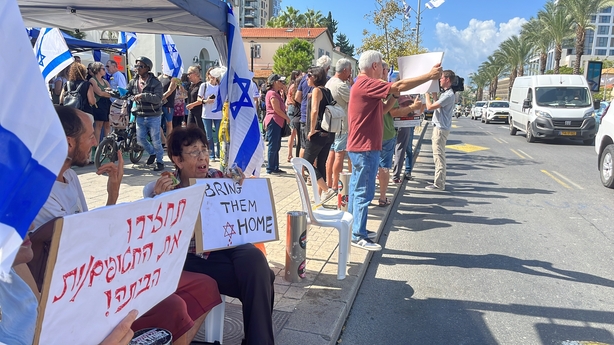
This isn’t solely an Israeli issue as the hostages come from many different countries - including the United States, which just happens to be Israel’s biggest and most important backer.
So far, four hostages have been released and there appears to be diplomatic optimism that more might be given their freedom.
Qatar is deeply involved in the back-channel negotiations, and we know that Hamas leaders are based in the country. The families of those detained argue that the release of the hostages has to be the number one priority - rather than waging a ground war.
The Israeli government says it has twin objectives: smashing Hamas and releasing the hostages. It says it accepts there’s a tension between the two of them. It adds it won’t discuss in public how such tensions are resolved.
According to the UN, the greatest immediate crisis is the plight of the 2.3m people in Gaza, where Israel is bombarding every day. 1.4m are displaced from their homes, and now increasingly at risk of disease and death due to the ongoing Israeli blockade which has prevented food, water, medical supplies and fuel being delivered to the strip - apart from 100 trucks crossing this week from Egypt into Gaza.
Comments this week from the UN Secretary General, Antonio Guterres, which drew ire from Israel, also amounted to a rebuke of the wider international community.
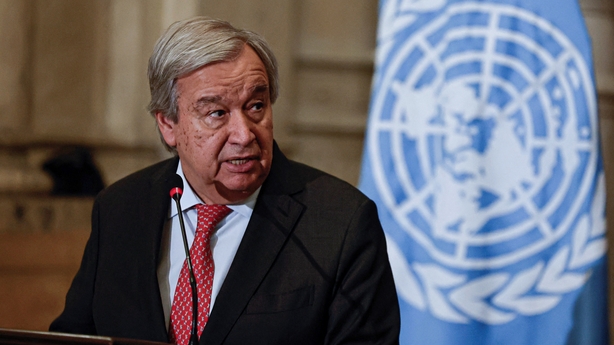
He said Hamas didn’t come from a vacuum but rather 56 years of occupation and its land being devoured with no political solution in sight.
The dream of two states, in which Palestinians finally have a country of their own and Israel lives securely, seems as distant and illusory as ever.
It’s notable, however, that both US President Joe Biden and French President Emmanuel Macron spoke to all of those concerns during their visits.
Sceptics, and there will be many, will scoff and dismiss this as the usual diplomatic mumbo jumbo - at best virtue signalling and at worst, crass disinformation.
But by publicly raising issues like the consistent delivery of humanitarian aid, and advising Israel to restrain itself and not repeat the mistakes the US made after 9/11, as well as the requirement for peace talks, Joe Biden sees himself as a moderating influence on Israel.
As for Hamas, it has inflicted the worst massacre in Israel’s history. Israel’s ongoing retaliation, the militant Palestinian group will calculate, will win it future support - indeed, the Turkish President Erdogan said this week they were a resistance group not terrorists. Hamas has also ensured that countries like Saudi Arabia will have to put on ice any thoughts they may have had about closer ties with Israel.
As I checked-in at Tel Aviv airport on Thursday evening, my app began to trill. A short time later passengers and airport workers were ordered into bunkers. We could hear the booms as the Iron Dome kicked into action and knocked out more rockets fired from Gaza.
Hamas knew that their missiles would be intercepted but that’s not the point - it was reminding Israel and the wider world that it is still here.







